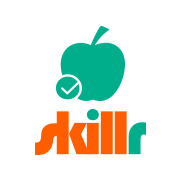Description

Parallel Learning

Study Island
Comprehensive Overview: Parallel Learning vs Study Island
Overview of Parallel Learning and Study Island
a) Primary Functions and Target Markets
Parallel Learning: Parallel Learning is a platform primarily focused on delivering personalized educational support through teletherapy services. It aims to provide specialized support and assessment for students with learning and attention challenges. The primary functions of Parallel Learning include offering psychological assessments, speech and language therapy, occupational therapy, and mental health services in a virtual environment. The target market for Parallel Learning consists of K-12 educational institutions, parents, and students who require specialized, flexible learning support that can be accessed remotely.
Study Island: Study Island, created by Edmentum, is an online educational resource designed to help students in K-12 enhance their understanding and mastery of state-specific standards and assessments. The platform offers practice tests, exercises, and educational games that cover a range of subjects including mathematics, reading, science, and social studies. Its primary function is to provide standards-based content that supports learning, assessment, and test preparation. The target market includes schools, districts, and educational institutions seeking to improve student performance on standardized tests and enhance learning outcomes.
b) Market Share and User Base
Parallel Learning: As a specialized service focused primarily on teletherapy and learning support for students with specific needs, Parallel Learning is a niche service in the broader educational technology market. While detailed market share statistics might not be readily available due to its concentrated niche, its user base predominantly consists of schools and families seeking customized therapy services, which could represent a smaller but focused segment within the EdTech market.
Study Island: Study Island, being part of the well-established Edmentum brand, enjoys a significant presence in the educational technology market with a large user base. It serves thousands of schools across the United States, making it a competitive platform for K-12 institutions aiming to help students meet state standards. Study Island’s wide adoption can be attributed to its long-standing reputation, comprehensive content coverage, and consistent alignment with educational standards.
c) Key Differentiating Factors
Parallel Learning:
- Specialized Services: Focuses on providing tailored therapeutic and educational support for students with learning disabilities and attention challenges rather than general academic skill-building.
- Teletherapy Platform: Offers virtual, one-on-one support that can be accessed remotely, which is crucial for students requiring specialized and flexible learning interventions.
- Comprehensive Assessments and Therapies: Provides a range of psychological and speech therapy services, setting it apart from broader academic platforms.
Study Island:
- Standards-Based Content: Designed to align with state-specific standards, offering resources and practice exercises directly related to the criteria assessed in standardized tests.
- Broad Subject Offering: Covers a wide range of subjects with interactive content, catering to the general student population in K-12 education.
- Assessment and Reporting Tools: Provides tools that help educators track student progress and identify areas needing improvement, aiding in data-driven instruction.
In conclusion, while Parallel Learning and Study Island both serve the educational sector, they cater to distinctly different needs and markets—one focusing on specialized therapeutic support and the other on comprehensive academic skill-building aligned with state standards.
Contact Info

Year founded :
2014
+91 99755 01444
Not Available
India
http://www.linkedin.com/company/parallel-learning

Year founded :
2000
Not Available
Not Available
Not Available
http://www.linkedin.com/company/study-island
Feature Similarity Breakdown: Parallel Learning, Study Island
Parallel Learning and Study Island are both educational platforms designed to support student learning, though they serve somewhat different purposes. Here's a breakdown of their core features, user interfaces, and unique elements:
a) Core Features in Common
-
Personalized Learning Paths
- Both platforms offer customizable learning experiences tailored to individual student needs, helping to address different learning paces and styles.
-
Assessment Tools
- Both solutions provide tools for assessing student performance, including quizzes and tests that align with educational standards.
-
Progress Tracking
- Teachers and students can monitor learning progress and performance through dashboards that display important metrics and reports.
-
Engagement Design
- Both platforms use gamification and interactive content to increase student engagement, which helps in maintaining interest and motivation.
-
Educational Standards Alignment
- The content offered by both platforms is generally aligned with relevant educational standards, such as Common Core or state-specific criteria, to ensure relevance and rigor.
b) User Interface Comparison
- Parallel Learning
- Focuses on a clean, intuitive interface designed to facilitate ease of use. It places emphasis on user-friendly navigation for both educators and students, often integrating features that support personalized learning pathways with minimal friction.
- Study Island
- Its interface tends to be more feature-rich with a broader range of options visible on the dashboard. This sometimes makes it appear more cluttered, but it provides quick access to various tools commonly used by teachers for assessment and instruction.
c) Unique Features
- Parallel Learning
- Focus on SEL (Social Emotional Learning): It often integrates SEL components to support not only academic but holistic student development.
- AI-Driven Insights: Uses advanced algorithms to provide insights and recommendations, enriching the personalized learning experience.
- Study Island
- Test Preparation: Specifically focuses on preparing students for standardized testing with practice in test-like environments.
- Extensive Question Banks: Offers a broad range of question types and formats, aiding teachers in creating diverse assessments easily.
- State-Specific Programs: Offers highly tailored programs that align with various state educational standards intricately.
Each platform has its strengths depending on the primary focus, whether it’s enhancing the breadth and rigor of test preparation (Study Island) or providing a balanced approach incorporating SEL and AI-driven personalization (Parallel Learning). When choosing between the platforms, considerations such as specific learning goals and priorities (e.g., test performance versus comprehensive student development) should guide decision-making.
Features

Progress Tracking and Analytics
Interactive Learning Experiences
Collaborative Learning Environment
Personalized Learning Paths

Engaging Practice Tools
Flexible Instructional Support
Comprehensive Reporting
Customizable Learning Paths
Best Fit Use Cases: Parallel Learning, Study Island
Parallel Learning and Study Island are educational platforms designed to cater to different learning and development needs. Here's a detailed look at their best-fit use cases:
Parallel Learning
a) Best Choice for:
-
Educational Institutions: Parallel Learning is particularly well-suited for schools, colleges, and universities that aim to offer personalized learning experiences to their students. It's valuable for institutions looking to enhance one-on-one learning through technology.
-
Tutoring Centers: Centers that offer specialized coaching—such as those focusing on students with learning differences like ADHD or dyslexia—benefit greatly, as Parallel Learning can adapt to varied learning paces and styles.
-
Corporate Training: Businesses focusing on employee skill enhancement can use Parallel Learning to deliver customized training programs. This is especially beneficial when training needs to cater to different skill levels within an organization.
-
Special Education Services: Parallel Learning's ability to tailor content makes it a good fit for programs focused on special education, offering personalized support and improved learning outcomes.
Study Island
b) Preferred Option for:
-
K-12 Schools: Study Island is a great choice for K-12 educational settings where standardized test preparation is crucial. It provides practice aligned with state-specific standards, helping students improve their performance on standardized tests.
-
District Education Departments: Ideal for districts that want to implement a unified tool across multiple schools. Study Island offers scalability and can be integrated into various schools to maintain consistency in education quality.
-
Home School Educators: Parents and educators involved in homeschooling often choose Study Island due to its structured content that aligns with school curricula and provides measurable progress tracking.
-
Test Prep Centers: Centers focused on preparing students for exams might prefer Study Island as it provides rigorous practice and assessment tools that are specifically tailored for test readiness.
d) Industry Verticals and Company Sizes
-
Education Sector: Parallel Learning and Study Island both serve the education sector but with different focuses. Parallel Learning caters more to personalized, adaptive learning experiences, while Study Island emphasizes standardized test preparation.
-
Corporate Sector: Parallel Learning can be a valuable tool for corporate training programs, especially in industries where continuous learning and development are crucial, such as technology firms or consulting companies.
-
SMEs and Large Enterprises: Parallel Learning can scale to suit both small and medium-sized enterprises (SMEs) as well as large enterprises by offering tailored learning pathways. Study Island, on the other hand, primarily serves educational institutions and is more relevant to large educational systems or networks.
Overall, Parallel Learning and Study Island provide solutions tailored for specific educational needs and sectors. Organizations choose between them based on whether they prioritize personalized learning experiences or standardized assessment preparation.
Pricing

Pricing Not Available

Pricing Not Available
Metrics History
Metrics History
Comparing teamSize across companies
Conclusion & Final Verdict: Parallel Learning vs Study Island
To provide a meaningful conclusion and final verdict comparing Parallel Learning with Study Island, I'll offer a structured analysis considering their value propositions, pros and cons, and tailored recommendations for potential users. Note that these assessments are general and should be evaluated against the specific needs of the user or institution.
Conclusion and Final Verdict:
a) Best Overall Value
Considering overall value is subjective and depends heavily on the user's context (e.g., educational goals, budget constraints, user experience preferences, etc.). However, based on general factors such as cost-effectiveness, educational impact, user interface, and scalability:
-
Study Island might offer the best overall value for educational institutions seeking a comprehensive platform for standardized test preparation and skill-building across varied subjects. Its extensive library of practice questions and real-time progress tracking can be highly beneficial for data-driven educational environments.
-
Parallel Learning may deliver more personalized value, particularly for users interested in leveraging technology for adaptive learning experiences. It typically excels in offering tailored learning paths that adjust to the student's strengths and weaknesses.
b) Pros and Cons
Study Island:
-
Pros:
- Extensive database of practice materials aligned with state standards.
- User-friendly analytics and reporting tools for educators to track progress.
- Gamification elements to engage students.
- Flexibility to adjust and align with various state curricula.
-
Cons:
- Learning focus may be too closely tied to test preparation, potentially limiting broader educational development.
- Some users find the interface outdated and less intuitive.
- May not cater adequately to the personalized learning needs of each student.
Parallel Learning:
-
Pros:
- Adaptive learning technology that personalizes educational content for each student.
- Strong focus on engaging, interactive learning experiences.
- Potentially more engaging for students seeking individualized paths.
-
Cons:
- May require more initial setup and customization from educators to optimize.
- Could lack the depth of standardized test preparation resources commonly found in more centralized curricula.
- Cost may be prohibitive for some smaller institutions or budget-conscious users.
c) Recommendations
-
For Educators/Institutions Focused on Standardized Test Preparation:
- Study Island is likely the better choice due to its robust library of aligned resources and tracking capabilities. It's particularly effective for schools aiming to improve standardized test scores.
-
For Users Seeking Personalized and Adaptive Learning:
- Parallel Learning should be considered, especially if the goal is to offer a more tailored learning experience that adapts to each student's unique learning pace and style.
-
Hybrid Approach:
- Consider utilizing both platforms if feasible. Use Study Island for its strong test preparation resources and Parallel Learning for personalized, skill-building exercises. This combination can provide a holistic approach to education.
Ultimately, the decision should hinge on the specific priorities and constraints of the educational environment, including the available budget, the need for test preparation versus personalized learning, and the technological infrastructure in place.
Add to compare
Add similar companies



